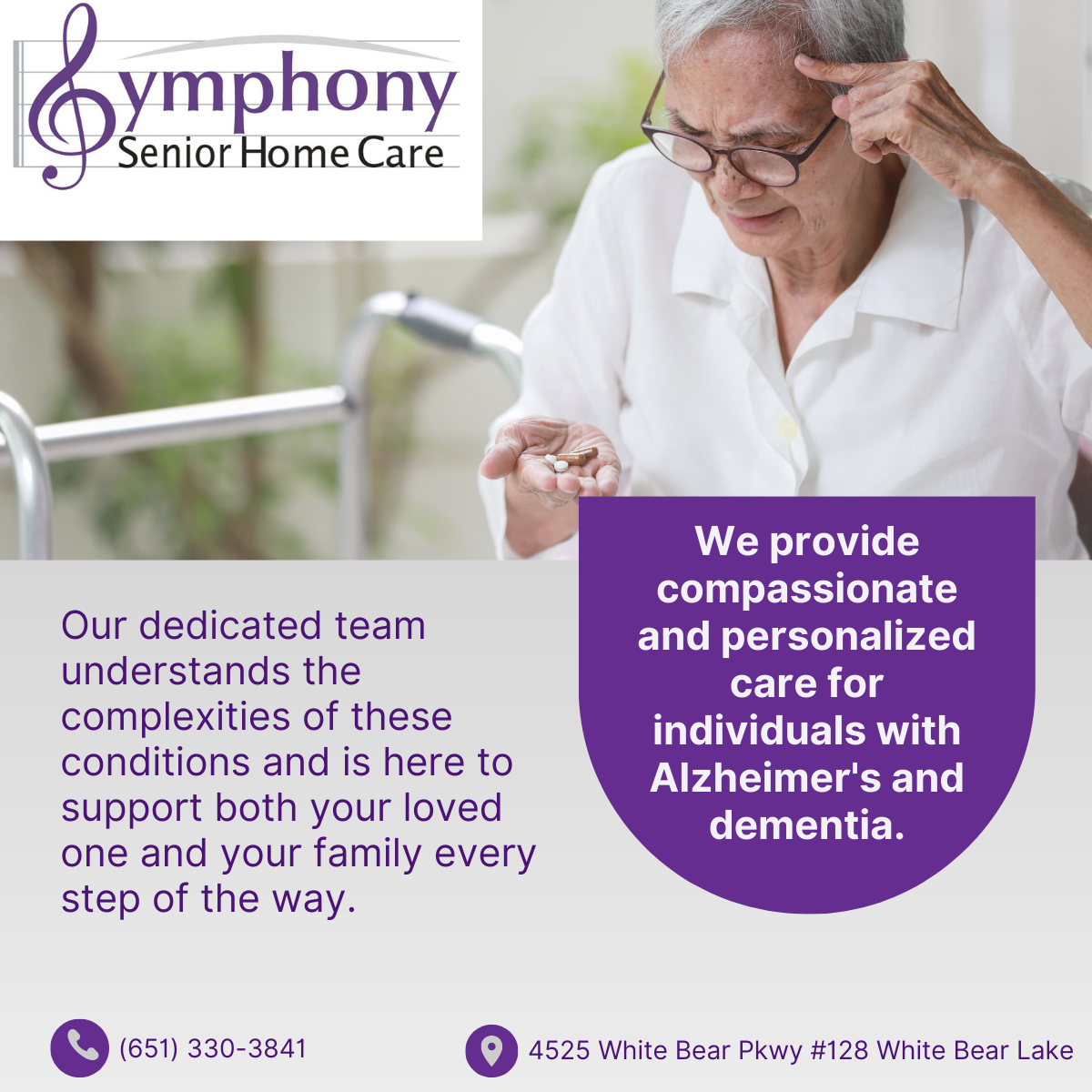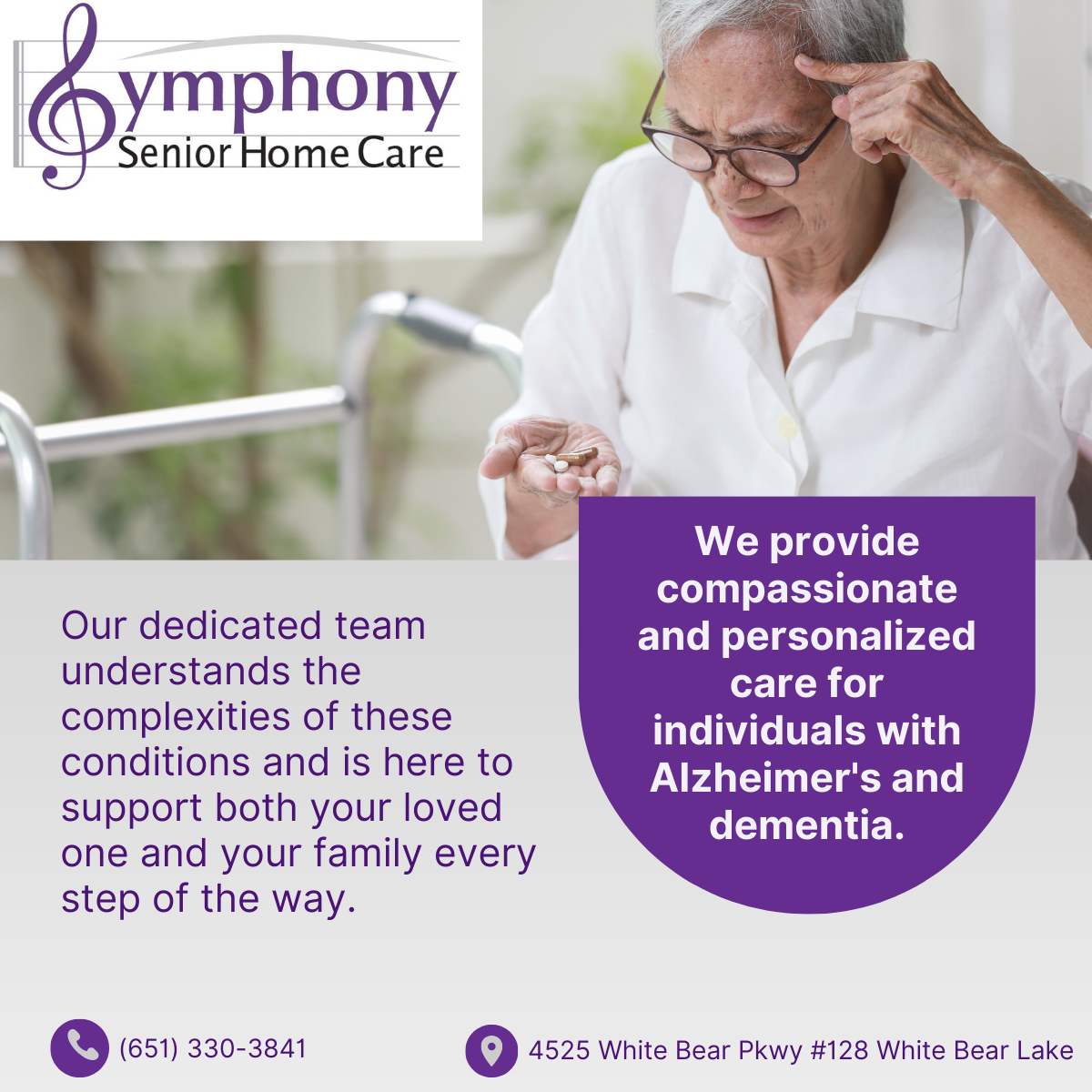June is Alzheimer’s & Brain Awareness Month, a crucial time to shed light on this progressive brain disease. While memory loss is often associated with aging, it’s important to be aware of the signs that might indicate something more serious, like Alzheimer’s disease.
At Symphony Senior Home Care, we understand the challenges families face when it comes to caring for loved ones with memory issues. In this blog post, we’ll discuss the early warning signs of Alzheimer’s disease and when you should consider seeking further help or diagnostics.
Early Warning Signs of Alzheimer’s Disease:
- Memory Loss that Disrupts Daily Life: Forgetting recently learned information, repeatedly asking the same questions, or misplacing important items are common concerns.
- Challenges in Planning or Problem-Solving: Difficulty following recipes, managing finances, or making decisions can be indicators.
- Confusion with Time or Place: Getting lost in familiar surroundings, forgetting the date or season, or experiencing sundowning (confusion in the evening) are red flags.
- Trouble Understanding Visual Images and Spatial Relationships: Difficulty reading, judging distances, or navigating stairs might be signs.
- New Problems with Words in Speaking or Writing: Difficulty finding the right words, using incorrect words, or struggling with writing or communication are potential symptoms.
- Decreased or Poor Judgment: Making risky decisions regarding finances, safety, or hygiene can raise concerns.
- Withdrawal from Social Activities: A noticeable loss of interest in hobbies, social events, or withdrawing from work or familiar activities could be a sign.
When to Seek Further Help:
If you notice several of these signs in your loved one, especially if they are causing significant disruptions to daily life, it’s crucial to seek professional help. Early diagnosis of Alzheimer’s disease allows for treatment planning, support services, and better care management.
Here are some resources to help you navigate the next steps:
- Schedule an appointment with your loved one’s doctor. They can conduct a physical and cognitive assessment and recommend further tests.
- Contact the Alzheimer’s Association: Their helpline (800-272-3900) offers information, support groups, and resources.
- Consider in-home care services. Symphony Senior Home Care can provide assistance with daily living activities and memory care support for your loved one.
Remember, you don’t have to face this alone. By being proactive and seeking help, you can ensure your loved one receives the care and support they need to manage Alzheimer’s disease.
In the next blog post of this series, we’ll explore strategies for having a conversation with your loved one about memory concerns.


